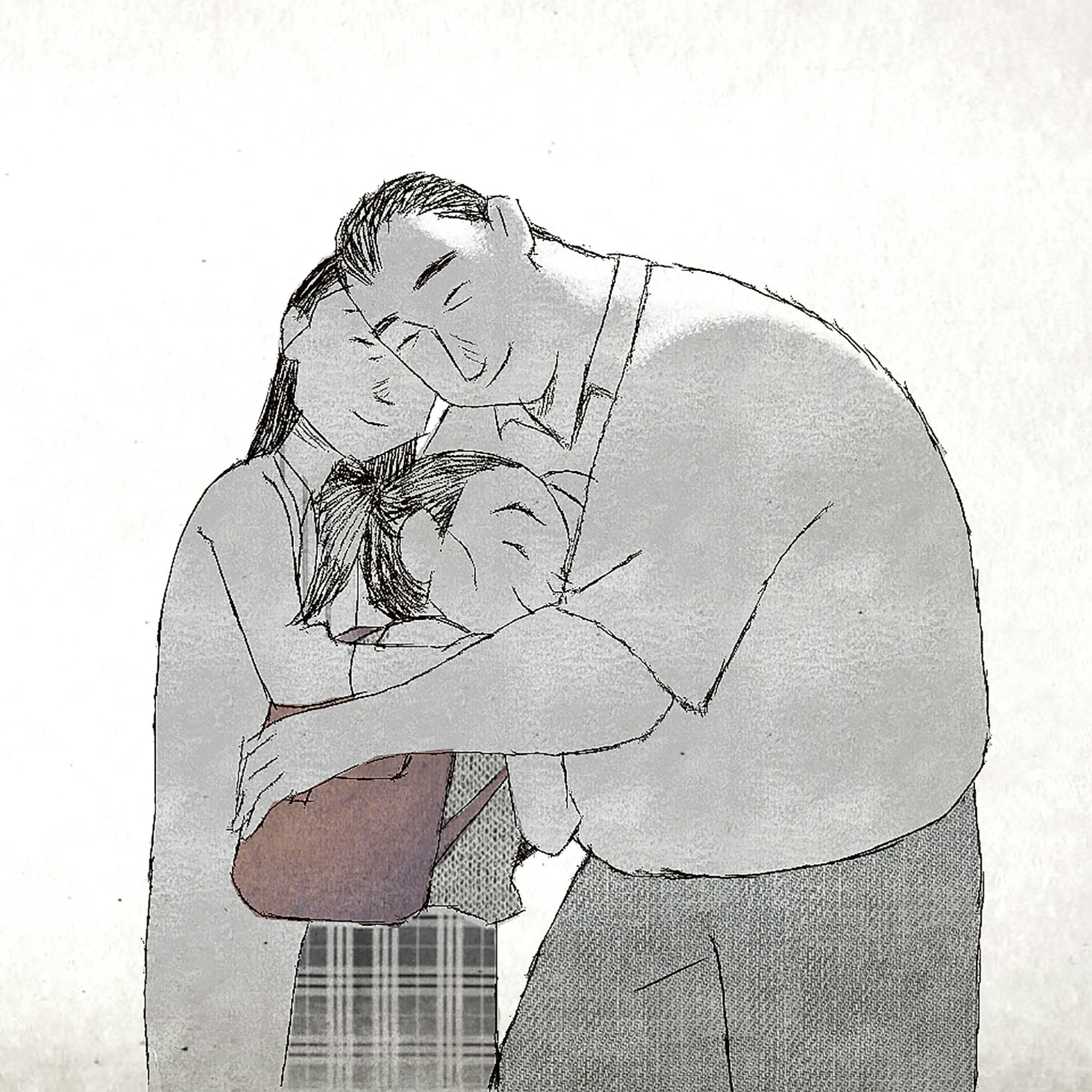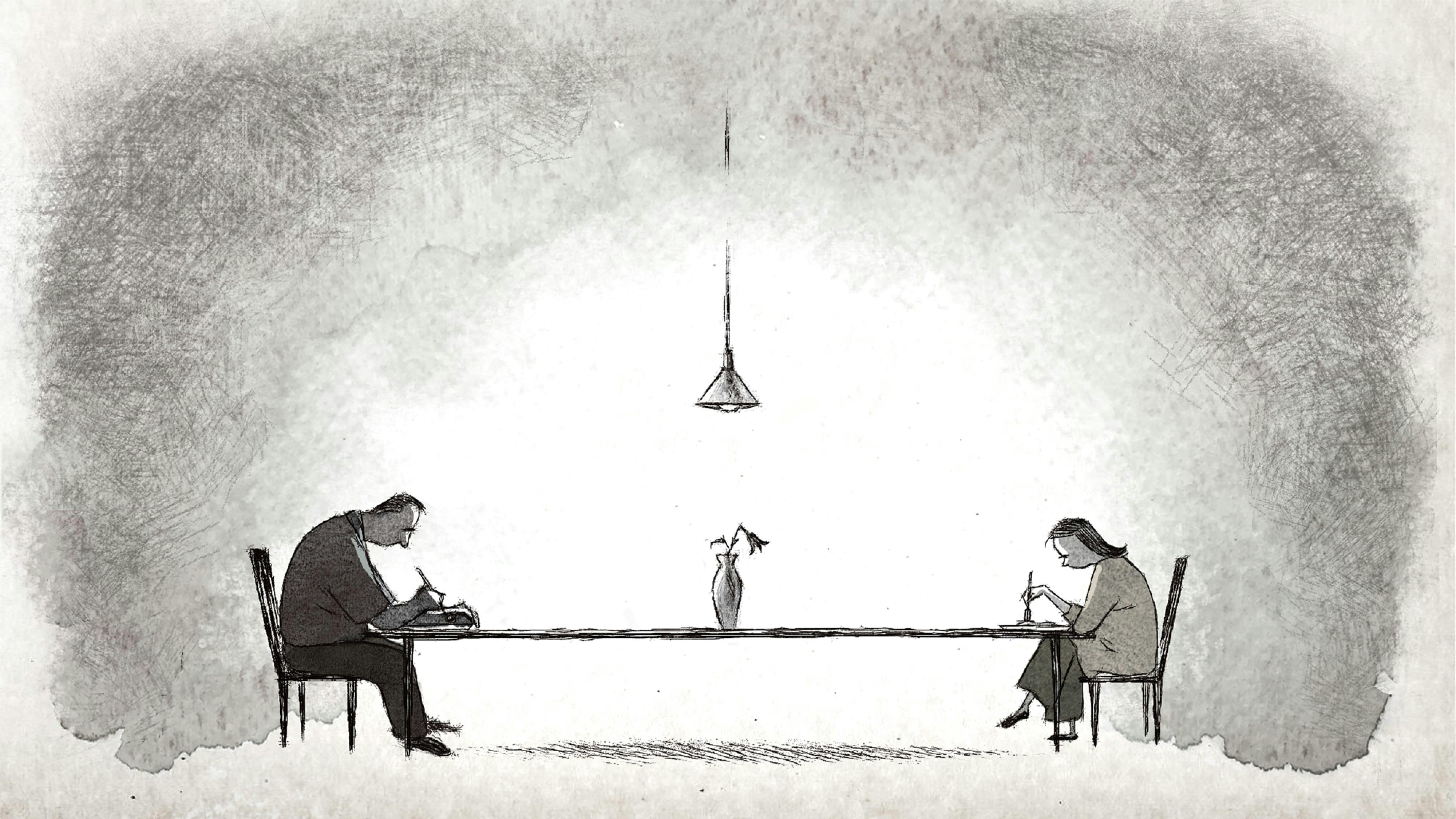Filmmakers Will McCormack and Michael Govier discuss the grief, love, and activism of their animated short.
There is a sense of both urgency and catharsis surrounding the animated film If Anything Happens I Love You. Without dialogue, and beautifully rendered in subtle 2D sketches, the 12-minute short tells the story of a couple wrestling with grief after the loss of their daughter in a school shooting. Critically acclaimed and recently nominated for an Academy Award, the film immediately captivated young audiences, inspiring a movement of honest, emotional videos on TikTok and bringing the hashtag #ifanythinghappensiloveyou to some 67 million views and counting on the platform.
“My niece texted me a couple of days after it came out on Netflix, and she said, ‘Uncle Will, your movie’s trending on TikTok,’” recalls Will McCormack, who wrote and directed the short with Michael Govier. “People would show themselves before the movie, during the movie, and then after the movie. All around the world. Kids keep dying from gun violence, and no one’s really done anything. This is a moment where they got to say, ‘This is hard, and no one’s fixing this.’”
If Anything Happens I Love You has added its voice to the chorus calling for an end to the epidemic of gun violence. It has caught the attention of activists in Hollywood, including Laura Dern, who signed on as an executive producer, and organizations like Everytown for Gun Safety, with which the filmmakers worked to understand victims’ voices. Among these many advocates is Courteney Cox, who recently spoke to McCormack and Govier about the making of the film and how it has moved audiences around the world. Their conversation follows.
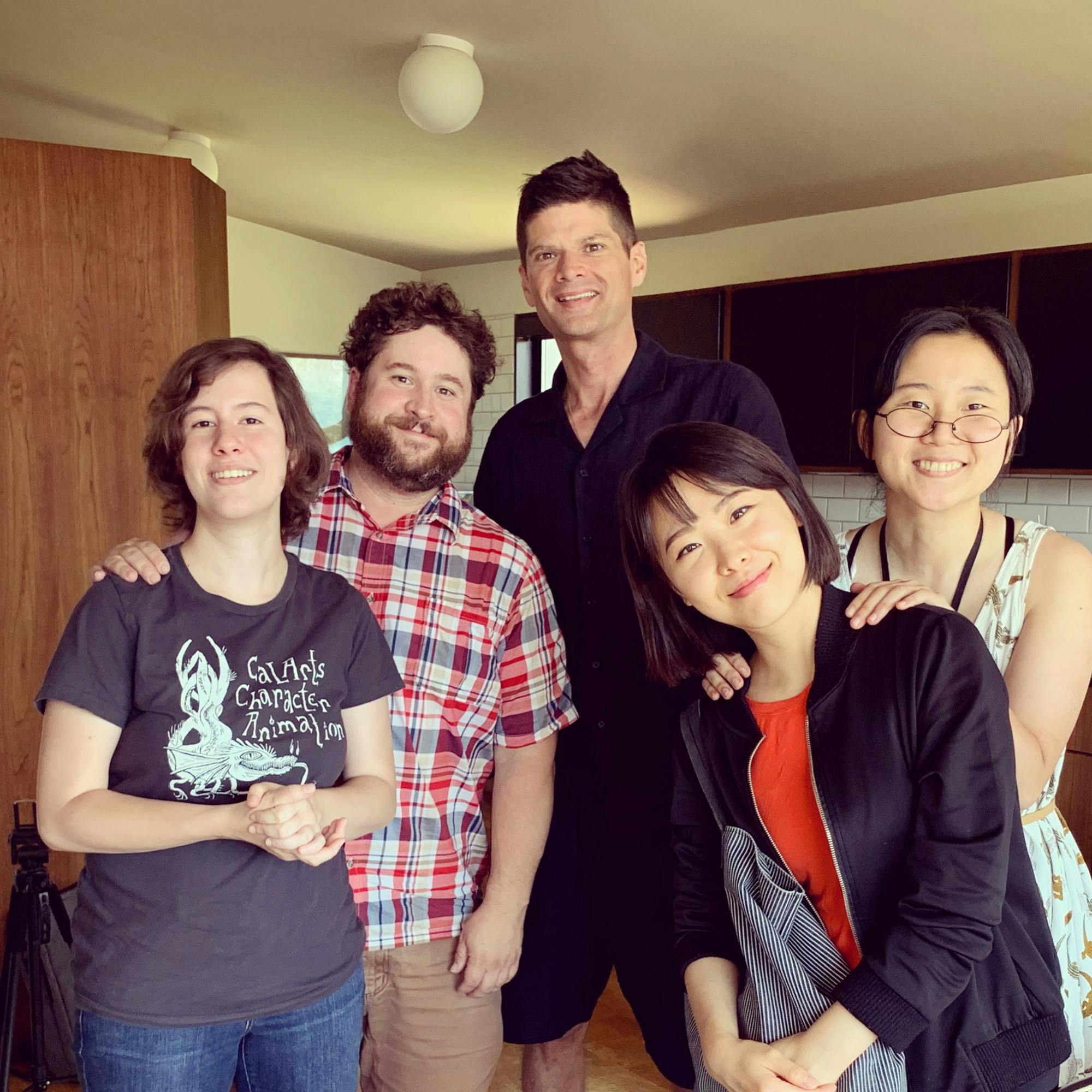
Julia Gomes Rodrigues, Michael Govier, Will McCormack, Youngran Nho, and Haein Michelle Heo
Courteney Cox: If Anything Happens I Love You is about every parent’s worst nightmare, the tragic loss of a child — in this case, one lost to gun violence. What drew you to the subject?
Will McCormack: Michael and I are both interested in writing about grief. We were both thinking about wrestling with some of the loss in our own lives through story. Michael pitched me this beautiful, Jungian visualization of loss, of these shadows that human beings couldn’t reach because they were in too much pain and agony. It started from that visual image, then we kept reading about the tragic gun violence that happens over and over and over again in America. We found this proverb that says, “When your parent dies, you bury them in the ground, but when your child dies, you bury them in your heart.” That became our North Star.
Michael Govier: We wanted to show what grief looks like, what it feels like. A lot of times grief is in those quiet moments of reflection, where maybe you’re alone, maybe you find someone’s handwriting on a piece of paper or you find an article of clothing of someone who’s passed. We wanted to show that it’s these quiet moments that hit hard.
WM: We wanted to create this film as an elegy to parents who’ve lost children. I became a father during the making of this film, and it’s inconceivable for me, the thought of losing my son. But it happens to people all the time. With this film, so many people have reached out to us from so many different parts of the world who have said, “I’ve been able to talk to my family about loss and I’ve been able to grieve and I’ve been able to cry.” For us, it’s been an emphatic declaration of story that people are willing to show up and be vulnerable and talk about it.
One of the things I adore in the film is the way it seems like everything flows from one moment to the next. What was your thought process behind that?
MG: We worked so hard on that. We wanted things to flow, because that’s how memory feels. It’s like, I remember dinner. Oh, then we’re outside playing soccer — like a dream feels. There’s no clear A to B to C. You’re just there. We wanted it to have that flow. We wanted the piece to feel very delicate, a little bit like wind or like a soft fog that slowly envelops you.
WM: We talked so much about look and color and composition, and we talked a lot about transition. Like Michael said, we wanted there to be an ethereal, floating quality that feels like memory and that also feels like an apparition — that this girl’s spirit could be back in the world. So it had a delicate quality to it. Everything that’s onscreen was pretty much in the script. When you’re making a movie that indie, you don’t have time or money to mess around. You’ve got to get it. It’s just raw and real.
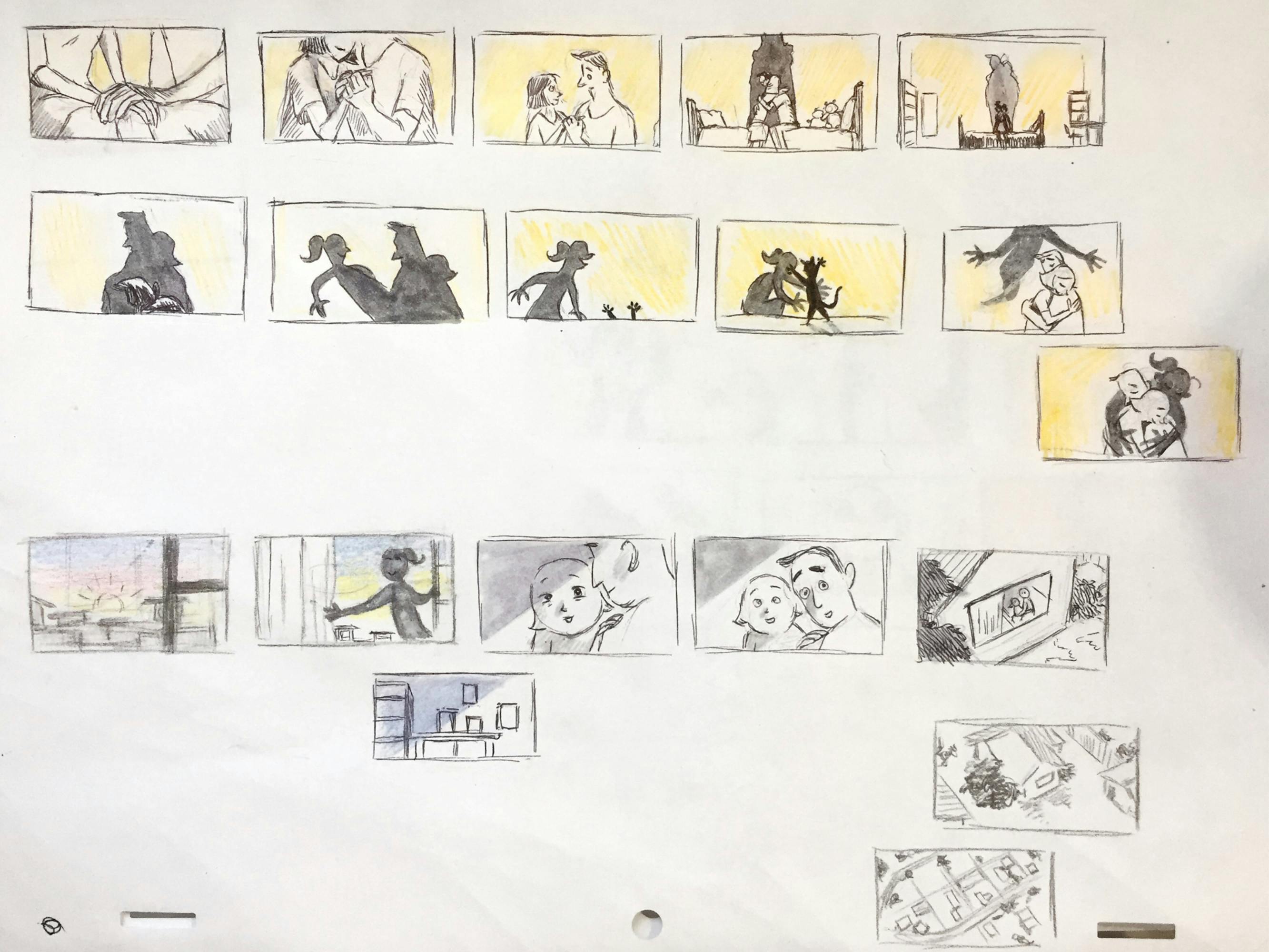
Why did you choose 2D animation? What were your visual references?
MG: We always wanted it to be in 2D. The style came from the story. We wanted the story to feel like grief. We wanted you to feel the emotions that the parents are feeling. Maryann Garger, who’s our lead producer, was our guardian angel on the film. She gave us the encouragement and she helped us build out the team. Then we got paired up with Youngran Nho, our director of animation. She had just graduated from California Institute of the Arts. Will and I, our reference film that we loved the tone and feel of was called Father and Daughter. We all met, and then Youngran Nho says, “Do you know, this reminds me of Father and Daughter? ” We’re like, “That’s the movie we’ve been talking about!” So we launched from there.
WM: We were going for total parsimony and minimalism in style for a couple reasons. We wanted it to feel barren and desolate, like grief can feel. I also think by making it that spare, it shines a spotlight on grief that acute. I think memory works that way, too. When we remember the past, we don’t remember everything that was in the room, but we do remember how we felt. Once we committed to that style, it kept giving back to us. It really paid story dividends. We had a cardinal rule: Anything that didn’t need to be in a frame, we would remove it.
We wanted to create this film as an elegy to parents who’ve lost children.
Will McCormack
The animation team was made up entirely of women. Was that a conscious decision?
MG: The conscious choice was we found Youngran Nho, and she was the only one who could deliver this. Then we needed to hire more animators. She brought in two other recent CalArts grads, Haein Michelle Heo and Julia Gomes Rodrigues, so that filled out the team. We were able to give opportunity to people who normally don’t get opportunity, especially not that young, coming out of college. That’s the blessing of indie film: People get to do things that they wouldn’t get to do right out of the gate.
WM: When we met Youngran, it felt like fate, like we were supposed to make this movie together. I’ve always worked with women and prefer working with women. Michael, I love working with you as a man, but I love your feminine qualities. Having two older sisters and a woman producing partner, Rashida Jones, it feels very natural to me. Our composer, Lindsay Marcus, is female, and our animation team is female. Our lead producer is female. We have an incredible group of women with us on this film.
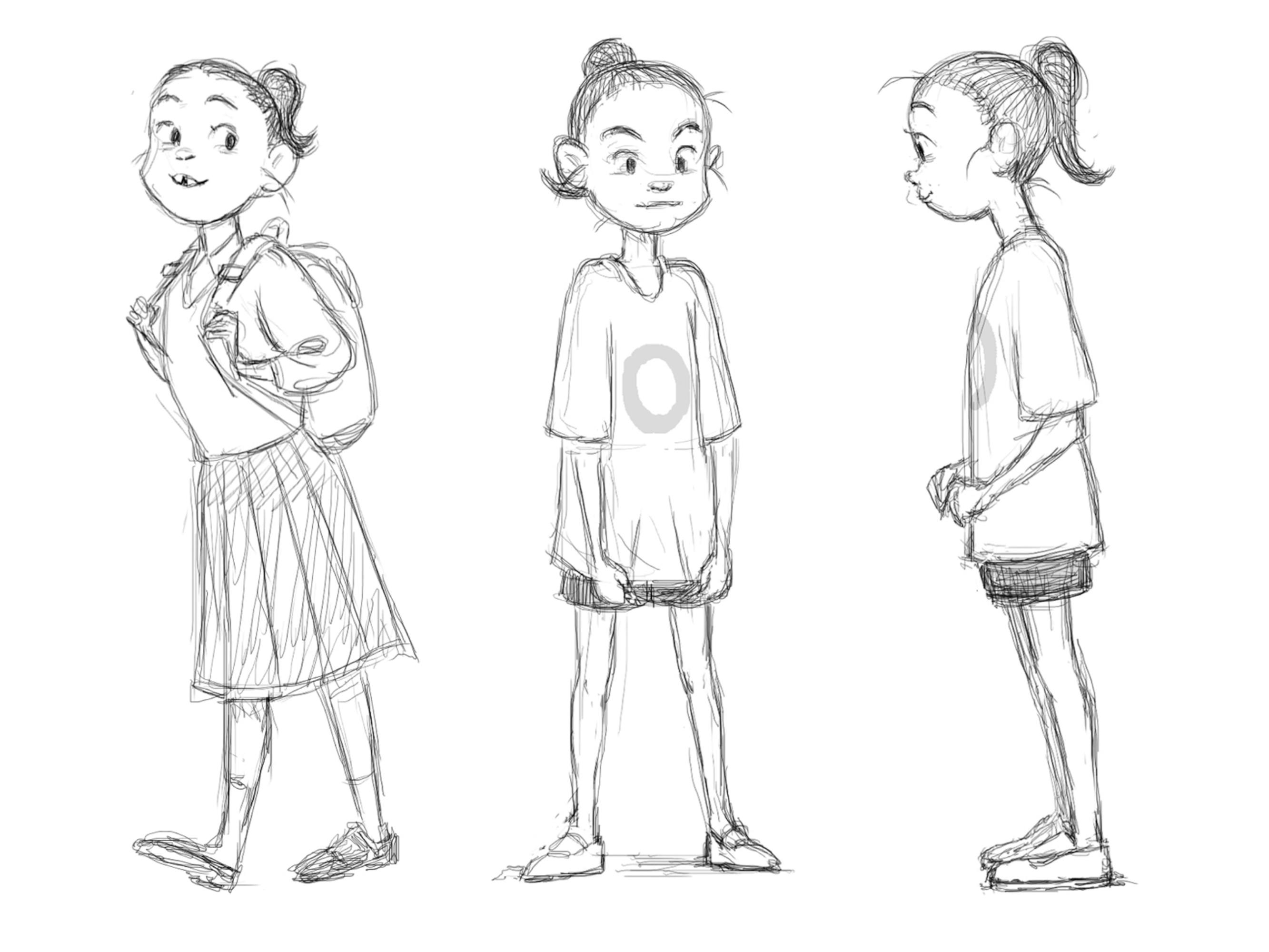
You’ve met many victims of gun violence through this film. What has that been like?
MG: We had one event where a lot of survivors showed up, and people from Moms Demand Action and from Everytown for Gun Safety. A lot of the survivors want to tell the tales of the ones that they have lost, not just the tale of that person’s last moments. They want to tell you what they were like, how they did this, how they were funny. I’m meeting these other family members that are no longer here, but I now know them because I hear about them.
WM: It’s humbling and moving to connect to people who’ve been through Aurora and Parkland and Sandy Hook. It’s meaningful that we get to be a part of this story and that those people continue to fight that fight. We’re a very small piece of this giant puzzle.
How does it feel to see If Anything Happens I Love You embraced by so many people — and so many young people?
MG: These kids in this generation grew up with active shooter drills. Active shooter drills. There’s trauma just in that. I think this film hits so hard with that generation because they have so much fear that is pent up and maybe unspoken. The film started a conversation about that fear.
WM: I’ve never thought that experience could exist as a filmmaker, that you could watch people watch your movie. I do think when it comes to gun safety, the world will change. And I think it will change because of kids.
MG: Maybe you’ve watched your work in a theater and you’re having a communal experience, but you’re not this close. With TikTok, people are filming themselves, and they’re having these huge emotional experiences, and at the end of the videos, they say, “I’m going to go hug my mom. I’m going to go hug my dad.” To be a little part of that, it’s overwhelming.
